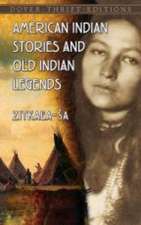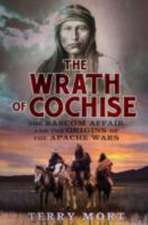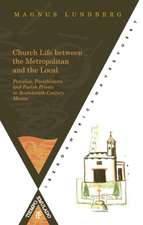American Indian Stories
Autor Zitkala-Saen Limba Engleză Paperback
| Toate formatele și edițiile | Preț | Express |
|---|---|---|
| Paperback (10) | 32.97 lei 3-5 săpt. | |
| Mint Editions – feb 2021 | 32.97 lei 3-5 săpt. | |
| CreateSpace Independent Publishing Platform – | 39.87 lei 3-5 săpt. | |
| CREATESPACE – | 46.00 lei 3-5 săpt. | |
| BISON BOOKS – sep 2003 | 82.24 lei 3-5 săpt. | |
| CREATESPACE – | 99.82 lei 3-5 săpt. | |
| Mint Editions – 30 aug 2022 | 140.56 lei 3-5 săpt. | |
| Book Jungle – 27 iul 2008 | 90.83 lei 6-8 săpt. | |
| Martino Fine Books – 24 apr 2020 | 113.37 lei 38-44 zile | |
| COSIMO CLASSICS – 30 apr 2009 | 121.52 lei 6-8 săpt. | |
| TREDITION CLASSICS – 31 oct 2011 | 145.52 lei 6-8 săpt. |
Preț: 46.00 lei
Nou
Puncte Express: 69
Preț estimativ în valută:
8.81€ • 9.19$ • 7.38£
8.81€ • 9.19$ • 7.38£
Carte disponibilă
Livrare economică 19 februarie-05 martie
Preluare comenzi: 021 569.72.76
Specificații
ISBN-13: 9781514608654
ISBN-10: 1514608650
Pagini: 64
Dimensiuni: 152 x 229 x 3 mm
Greutate: 0.1 kg
Editura: CREATESPACE
ISBN-10: 1514608650
Pagini: 64
Dimensiuni: 152 x 229 x 3 mm
Greutate: 0.1 kg
Editura: CREATESPACE
Notă biografică
Zitkála-sá (1876-1938) was a Yankton Dakota writer, translator, musician, teacher, and activist. Born on the Yankton Indian Reservation in South Dakota, Zitkála-sá-also known as Gertrude Simmons Bonnin-was raised by her mother following their abandonment by her German American father. Zitkála-sá grew up on the reservation, but was taken by missionaries at the age of eight to the White's Indiana Manual Labor Institute, a Quaker school in Wabash, Indiana. There, Zitkála-sá was forced to suppress her heritage by cutting her hair and praying as a Quaker, but she also took advantage of the opportunity to learn reading and writing, as well as to play violin. She briefly returned to the reservation in 1887 before going back to Indiana to finish her education, after which she studied at Earlham College and played violin at the New England Conservatory of Music in Boston. After working from 1899 to 1901 as a music teacher at the notoriously abusive Carlisle Indian Industrial School in Pennsylvania, Zitkála-sá began to speak out against the program. In 1901, she wrote an article for Harper's Monthly chronicling a young boy's experience as a student at the school, where he felt forced to sacrifice his identity in order to assimilate. That same year, Zitkála-sá began collecting stories for Old Indian Legends, which recorded traditional stories she learned in her youth and from members of various tribes. Over the next several decades, she wrote several story collections, countless articles for Harper's Monthly and the Atlantic Monthly, and the libretto and songs for The Sun Dance Opera (1913). She also worked as an advocate and activist for the rights of women and American Indians, founding the National Council of American Indians with her husband and running grassroots policy and voter-registration campaigns around the country. She is remembered not only for her contributions to American Indian culture as a writer and translator, but for her tireless advocacy for resistance and reform that led to better education, healthcare, and legal standing for American Indians nationwide.






